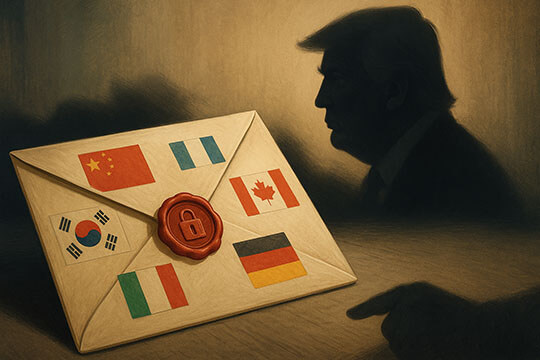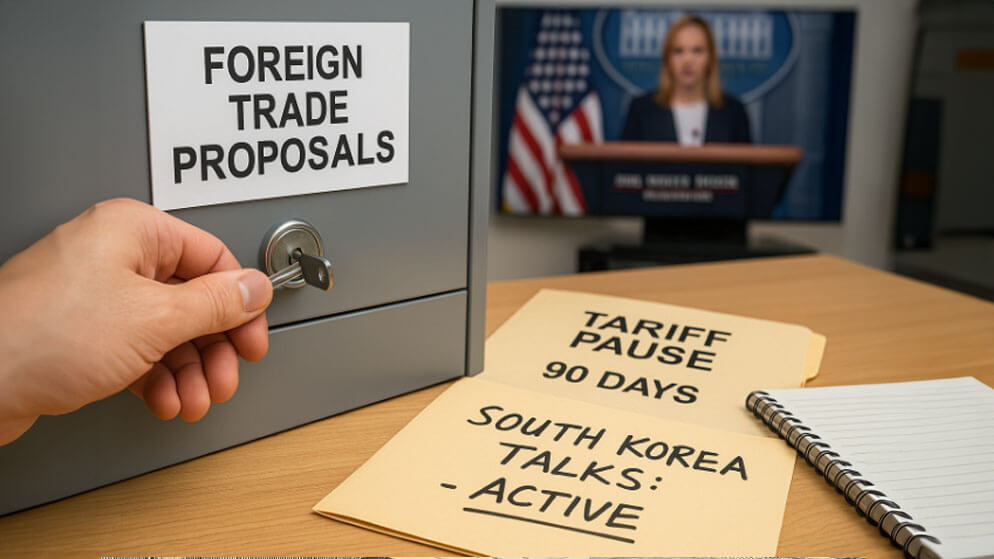
The White House announced on Monday that President Donald Trump's administration has made significant strides in its aggressive trade strategy by securing eighteen written trade proposals from various foreign countries. At a recent press briefing, Fox News White House correspondent Peter Doocy confronted Press Secretary Karoline Leavitt regarding the confidentiality surrounding these proposals. Doocy asked pointedly, “You guys have at least 18 written trade proposals. We still don’t know who they are from or what they contain. What is the hold up with that?”
Leavitt was quick to dispel any notion of delay, emphasizing the administration's dedication to the matter: “There is no hold up. We’re working around the clock.” She highlighted the trade team's round-the-clock efforts to finalize agreements that promise to benefit American workers and businesses. Furthermore, Leavitt indicated that President Trump is expected to share substantial updates on these negotiations later in the week, explaining that she did not want to preempt the president's announcements.
These developments come in the wake of President Trump's strategic move on April 9, when he announced on Truth Social a 90-day pause on reciprocal tariffs for all countries, excluding China. This pause was intended to give foreign nations an opportunity to present proposals that align with the administration's criteria for equitable trade practices.
The administration has spotlighted negotiations with South Korea as particularly progressive, hinting that these discussions might serve as a benchmark for future deals. During a joint statement on Thursday, President Trump and Treasury Secretary Scott Bessent expressed that talks with South Korea had progressed "faster" than anticipated, suggesting that a formal agreement with this vital Asian ally might be announced soon.
In contrast, the relationship with China remains complicated. On April 22, President Trump expressed his intention to "substantially" lower the high tariffs imposed on Chinese goods. However, this announcement was met with skepticism from Chinese officials, who have publicly denied involvement in negotiation talks with the United States. In response to this uncertainty, Press Secretary Leavitt clarified on a Wednesday Fox News appearance that there would be “no unilateral reduction in tariffs” on China. Any tariff reductions would necessitate direct negotiations and concessions from the Chinese government.
Despite mixed messages, CNBC reported that Treasury Secretary Bessent has confirmed a "de-escalation" in the trade conflict with China, indicating that some form of agreement might be on the horizon. This news comes amid a backdrop of escalating trade tensions that surged after Trump's initial tariff announcement on April 2, which led to retaliatory measures from China and fears of a full-blown trade war. The conflict has seen some Chinese goods facing tariffs as high as 245 percent, as stated by the White House on April 15.
Commerce Secretary Howard Lutnick also plays a pivotal role in these discussions. Leavitt mentioned his recent phone conversations with both Lutnick and Bessent over the weekend, signaling active engagement in trade negotiations.

